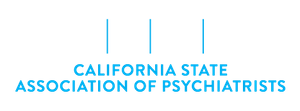SB 221 has been signed by the Governor. This legislation closes a critical loophole in existing law by detailing an appropriate timely access standard for follow-up appointments while giving the treating clinician an option to create alternative timeframes for follow-up appointments when it is warranted. SB 221 contains the following provisions:
- Requires a health plan that provides or arranges for the provision of hospital of physician services, including a specialized mental health plan that provides physician or hospitals services, or that provides mental health services pursuant to the contract with a full-service plan to comply with timely access requirements pursuant to this bill, and for contracts issued, renewed, or amended on or after July 1, 2022, to provide information to an enrollee regarding the standards for timely access to care, including information related to interpreter services at the time of the appointment without imposing delay on scheduling of the appointment, and in a timely manner, no less than annually.
- Codifies many of the requirements of the Department of Managed Health Care (DMHC) and California Department of Insurance (DOI) timely access regulations described in 2) of the comments section below and adds a new standard, commencing July 1, 2022, for nonurgent follow-up appointments with a nonphysician mental health care or substance use disorder provider of within ten business days of the prior appointment for those undergoing a course of treatment for an ongoing mental health or substance use disorder condition, except when the provider has determined and noted in the record that a longer time will not have a detrimental impact, as specified. States that this does not limit coverage to once every 10 business days. Requires a health plan that uses a tiered network to demonstrate compliance based on providers available at the lowest cost-sharing tier.
- Clarifies that 2) above, does not permit nonurgent follow-up appointments with a nonphysician mental health care or substance use disorder provider to be limited to once every 10 days.
- Requires a health plan to arrange coverage outside the plan’s contracted network in accordance with existing law, if medically necessary treatment of a mental health or substance use disorder is not available in network within the geographic and timely access standards set by law or regulation, as specified.
- Applies the DMHC timely access requirements to Medi-Cal managed care plans. Requires a referral to a specialist by a primary care provider or another specialist to be subject to relevant time elapsed standards, except as specified.
- Requires DMHC’s timely access report to include demonstration of the average waiting time for each class of appointment regulated under the law.
- Requires a health insurance policy that is issued, renewed, or amended on or after July 1, 2022, that provides benefits through contract with providers for alternative rates, to provide information to an insured regarding the standards for timely access to care, as specified, including information related to receipt of interpreter services in a timely manner, no less than annually.
- Requires an insurer to ensure timely access to covered heath care services, including applicable time-elapsed standards, by assisting an insured to locate available and accessible contracted providers in assisting in a timely manner appropriate for the insured’s health needs. Requires an insurer to arrange for the provision of services outside the insurer’s contracted network if unavailable within the network if medically necessary for the insured’s condition. Requires an insured’s costs for medically necessary referrals to non-network providers to not exceed applicable in-network copayments, coinsurance, and deductibles.
- Prohibits a plan or insurer from preventing, discouraging or disciplining a contracting provider or employee for informing enrollees or insureds about timely access standards.
The pursuit of true parity continues. More to do at the national level, on DMHC enforcement, and with workforce development.

